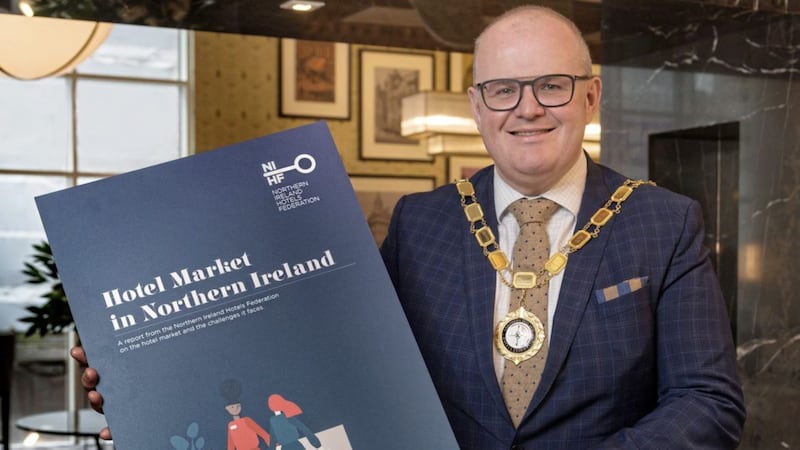ONE million fewer hotel beds will be sold in Northern Ireland this year than last, and the accommodation sector will lose a third of its revenues, a fresh industry report claims.
And the industry’s inability to trade in the way it did prior to the first lockdown in March means it will shed up to 20 per cent of its direct workforce through redundancies, re-deployment and natural churn.
The bleak scenario is painted in a report due to be issued today at the NI Hotels Federation's annual Hospitality Exchange summit, which is being held virtually for the first time.
"The 2020 hotels report is a more like a horror story than a fairy tale," NIHF chief executive Janice Gault says.
"At least a million less hotel rooms will be sold this year while turnover is expected to fall below £250 million, which is just a third of 2019 sales."
The north's 143 hotels provide 9,580 rooms and, pre-Covid, the sector supported 13,000 jobs (about 10,000 direct).
Around 2.5 million rooms were sold last year, and predictions pointed to 2020 following a similar trajectory.
But since hotels were ordered to shut on March 26, the industry has been decimated, and Ms Gault said: “The impact of Covid-19 has been catastrophic.
“We entered 2020 confidently, with a £650m investment in stock in the preceding five years delivering an exceptional product, and the sector was poised to capitalise on increased all-island air access and strong international interest.
“When the pandemic hit, hotels closed from March 26 to July 3, around 90 per cent of staff were furloughed, and the industry’s inability to trade in the way it did prior to closure means it is likely we will lose between 15 and 20 per cent of the direct workforce.
“The final number will be determined by winter trading, the timing of a return to full trade and fiscal support for employees over the next six months.”
When the industry re-opened on a phased basis in July, increased domestic business and large visitor numbers from the Republic contributed to a better summer than predicted, and the VAT rate reduction to 5 per cent allowed hotels to hold their rate and offer value.
“But this month the situation began to deteriorate again as infection levels rapidly increased, while the Northern Ireland wide curfew and localised restrictions decimated trading - a scenario that now appears to be the playbook for what's to come,” Ms Gault said.
She says it is imperative the industry is allowed to now trade sustainably within a clear and workable framework.
And while welcoming a £9.9m Executive fund to help fund increased promotion, support and a stay-at-home voucher scheme, she said she hopes the money can be deployed despite the looming threat of another lockdown.








